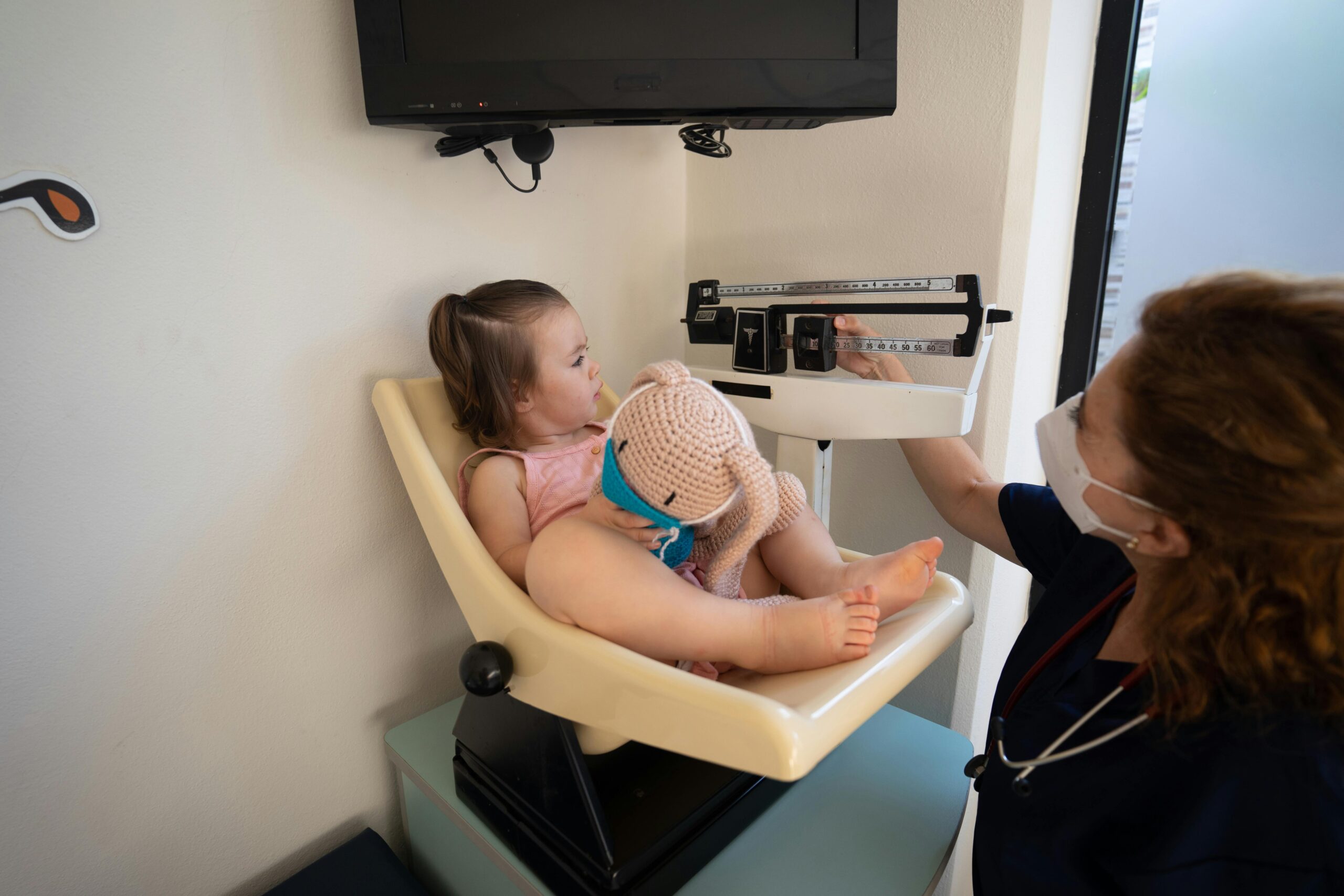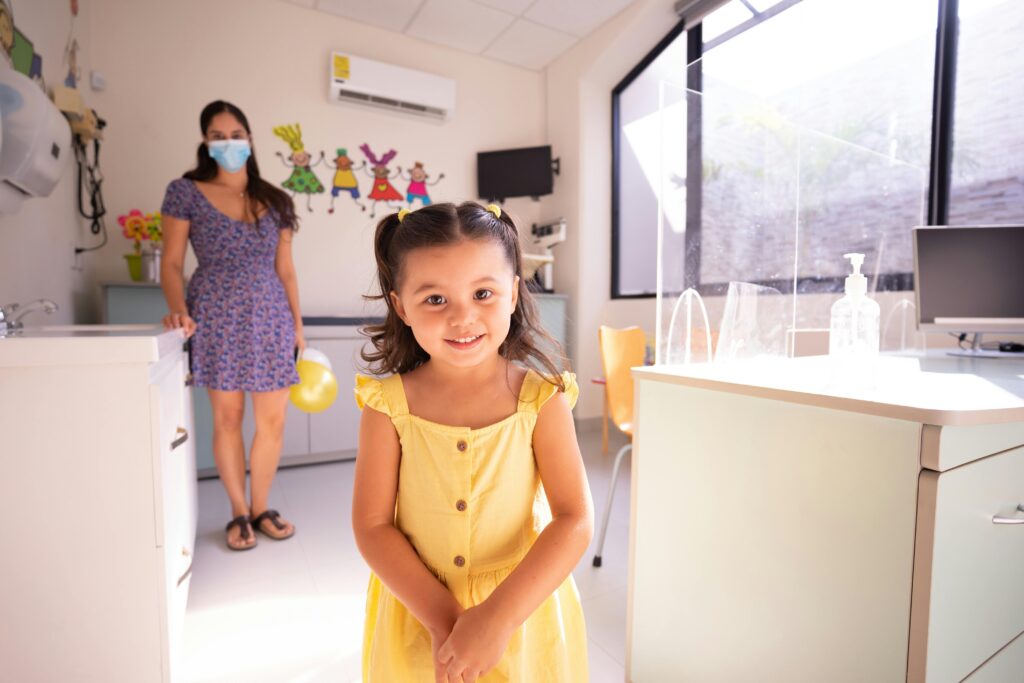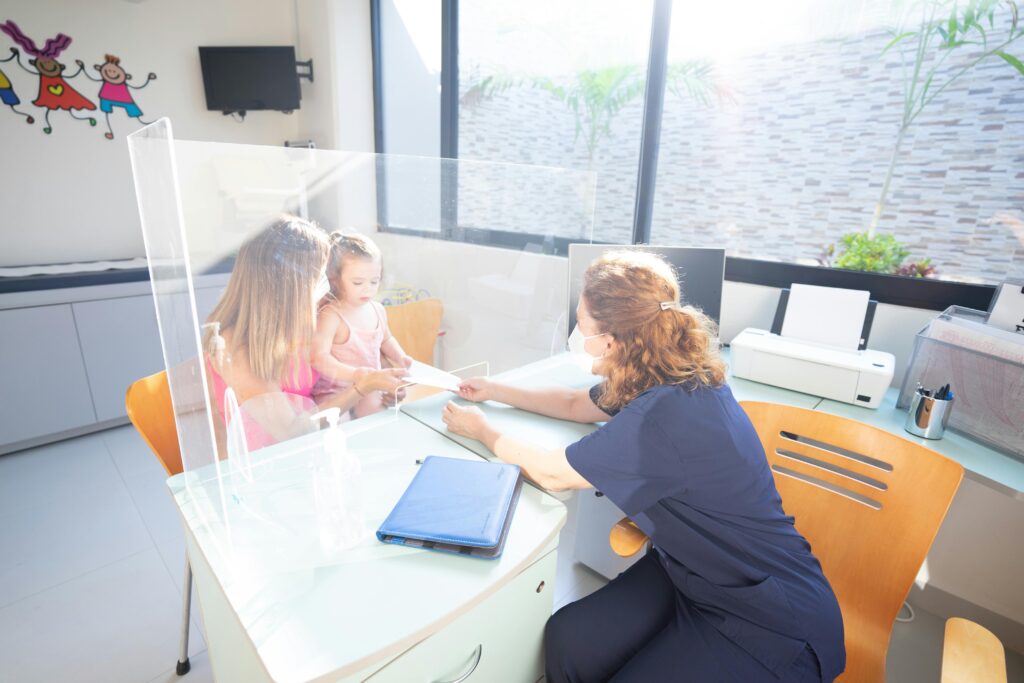NICU Nurse Adopts 14-Year-Old Patient Who Delivered Triplets Alone

What does it mean to grow up too fast? For most, it’s juggling extra chores, learning responsibility earlier than expected, or stumbling through the turbulence of teenage heartbreak. For Shariya Small, it was something far heavier: delivering three premature babies at the age of 14, each barely larger than the palm of her hand.
Statistics tell us that fewer than 150 sets of triplets are born in the United States each year a rare event on its own. But paired with the reality of a young teenager, barely in eighth grade, navigating motherhood alone? That combination is almost unthinkable. While her peers worried about math homework or who to sit with at lunch, Shariya spent her days inside a neonatal intensive care unit, watching machines breathe for her children.
It is here, in the fluorescent hum of hospital lights, where this story takes root. Because amid the monitors and the silence of a young girl sitting alone, one nurse chose not to look away. And that decision would alter the course of four lives forever.
A Childhood Cut Short
At an age when most teens are worried about grades, friendships, or the latest viral trend, Shariya Small’s world was defined by survival. In August 2020, still in middle school, she went into labor just six months into her pregnancy. Her triplets Serenitee, Samari, and Sarayah arrived at only 26 weeks, each weighing little more than a bag of sugar.
Premature births this early come with daunting odds. The March of Dimes reports that babies born before 28 weeks face some of the highest risks of breathing complications, feeding difficulties, and long-term developmental delays. For Shariya, this meant more than five months of watching her children fight for stability inside incubators, their tiny bodies connected to machines that kept them alive.
The physical toll of such a pregnancy is immense for any mother, but for a 14-year-old, the demands are almost unimaginable. Her body was still developing, her mind still growing, yet she was thrust into the role of caretaker for three fragile lives. And she was doing it without a reliable support system. Day after day, she sat silently in the NICU, often without food, without family, without the comforting presence of anyone who could reassure her she wasn’t alone.
The Bond That Changed Everything

In the NICU, it was impossible for nurse Katrina Mullen not to notice the quiet teenager who rarely left her babies’ side. Shariya was always there, tucked into a chair by the incubators, watching over her triplets with a mix of fear and determination. Yet what struck Mullen most wasn’t just her presence it was her aloneness. No relatives came. No friends stopped by. It was as if this young girl had been left to shoulder a burden too heavy for anyone her age.
Mullen could have kept her distance, treating Shariya as just another patient’s parent. But something in the girl’s silence spoke to her. She understood isolation in a way few others could. Years earlier, as a teenager herself, Mullen had become a mother at sixteen. She had carried the same fear, the same sense of being out of place. When she finally shared her story with Shariya that she too had been a teen mom, and that she knew what it meant to feel lost in the swirl of adulthood before your time something shifted.
Walls came down. The guarded teenager who had kept to herself began to open up. In the sterile hum of hospital machines, trust began to grow. Their conversations stretched from feedings and diapering techniques to late-night texts and phone calls, as Mullen became more than a nurse. She became a mentor, a steady voice reminding Shariya that she wasn’t as alone as she felt.
Life Beyond the Hospital

When the triplets were finally discharged after more than five months in the NICU, most new parents might have felt relief. For Shariya, it was fear. In the hospital, she had nurses, doctors, and a steady rhythm of care. At home, she had little more than uncertainty.
Mullen, who had stayed in close contact, decided to visit Shariya after she returned to Kokomo, Indiana. What she found was heartbreaking. Shariya was living with a relative in a cramped home where stability was scarce. She slept on a couch, while her three infants still fragile and in need of constant attention shared a single playpen and bassinet. The space was not only unsuitable for raising one newborn, but dangerously inadequate for three premature babies.
Mullen’s worry deepened when she noticed baby Samari. He was visibly underweight, struggling to keep food down, his skin marked by eczema. Doctors would later diagnose him with “failure to thrive,” a condition in which infants fall dangerously below expected growth standards. It was a clear sign that the young family wasn’t getting the care and resources they needed.
The situation soon drew the attention of child protective services. Officials began to question whether Shariya and her triplets could remain together in such conditions. The possibility of foster care loomed a system that, in all likelihood, would have separated the four of them into different homes. For a teenager who had already lost so much, the thought of losing her children was almost unbearable.
The Turning Point

When child services stepped in, the outcome seemed inevitable. Shariya and her triplets would be removed from their unsafe home and placed in foster care. But the reality was clear: no foster family could realistically take in a teenage mother and three fragile infants together. The system’s solution would have been separation splitting the babies apart and placing Shariya elsewhere.
That was the moment Shariya found her voice. When asked where she wanted to go, she gave the only answer that felt safe: to Katrina Mullen. The nurse who had once taught her how to swaddle and feed her premature babies was the one person she trusted to keep her family whole.
When the call came, Mullen didn’t hesitate. A single mother of five already three of whom were still living at home she knew what she was taking on was extraordinary. But she also knew she couldn’t say no. “I just kept thinking, I have to do this,” she would later recall. “No one was going to take a teen mom and her preemie triplets. But I knew Shariya was resilient. She just needed a safe place to put her roots.”
Her living room quickly transformed into a nursery. Cribs, high chairs, and baby gear filled the space as if a “baby bomb” had gone off. To make it official, Mullen enrolled in foster parent training and took the steps needed to legally bring Shariya and the triplets under her roof. What began as an act of compassion inside a hospital had now become a commitment that would redefine her household.
The adjustment was anything but easy. Between her nursing shifts, her own children’s needs, and the endless demands of three infants, Mullen’s days became a whirlwind of responsibility. Yet through the exhaustion, there was purpose. This was no longer about managing chaos it was about rewriting a story that had been on the verge of tragedy.
From Survival to Stability
NICU Nurse Adopts 14-Year-Old Patient Who Delivered Triplets Alone https://t.co/8gOMSrK9Dt pic.twitter.com/2EsL2hsAes
— Diversity Nursing (@DiversityNurse) January 7, 2025
Life in Mullen’s home was not simple, but for the first time since becoming a mother, Shariya could breathe. The overwhelming fear of losing her children gave way to something steadier: the possibility of building a future. Under Katrina’s guidance, she began to learn not only how to care for her triplets, but also how to care for herself.
At first, Mullen shouldered much of the responsibility sleepless nights, endless feedings, and the juggling act of three babies at once. But gradually, Shariya stepped into her role with growing confidence. She learned how to feed and soothe all three children, how to manage their needs without breaking down, and how to trust herself as a capable mother. Katrina’s steady encouragement helped her see that she wasn’t destined to repeat cycles of instability she could create something different.
Beyond motherhood, Shariya began reclaiming her own education. With Mullen’s support, she enrolled in an alternative high school program, balancing classes with the demands of parenting. Instead of falling further behind, she excelled earning strong grades and proving to herself that her academic dreams weren’t over. Therapy and guidance helped her navigate the emotional weight she carried, teaching her healthier ways to cope and communicate.
Making the Bond Official

For nearly two years, Katrina Mullen’s home was both sanctuary and training ground a place where Shariya learned to mother her children while rebuilding her own sense of self. But the day came when the bond they had built could no longer be left to circumstance. On February 6, 2023, the relationship that began in a hospital corridor became a family bound by law. Katrina formally adopted Shariya as her daughter, and with her came the official responsibility for Serenitee, Samari, and Sarayah.
It wasn’t an easy road to reach that point. Legal paperwork, foster care requirements, and the daily strain of raising eight children under one roof tested Mullen’s resilience. But for her, love outweighed the struggle. “Has it been easy? No,” she admitted. “She pushes limits just like any other teenager. But I love her. I’m her mom and I’m never going anywhere.”
The impact of adoption was immediate and profound. The triplets, now thriving toddlers, were no longer at risk of being split up or shuffled through the foster system. They had stability, a grandmother they called “LaLa,” and a home filled with both structure and love. Shariya, once a frightened eighth grader sitting alone in the NICU, now had something she hadn’t known in years: permanence.
Her accomplishments reflected that foundation. She graduated from her alternative high school, maintaining strong grades, and began exploring colleges with the dream of becoming a social worker hoping to one day help others as she had been helped. A GoFundMe launched by Mullen drew tens of thousands of dollars in donations, providing Shariya with a financial cushion to pursue higher education and long-term security for her children.
A Ripple Effect of Compassion

What began as one nurse noticing a lonely teenager in a hospital room has become a story that resonates far beyond the walls of the NICU. Katrina Mullen’s decision to open her home did more than keep a family together it illuminated the power of compassion to transform lives in ways systems often cannot.
Had Mullen stepped back, the outcome would likely have been grim. Shariya and her triplets would have been separated, their futures fragmented before they had even begun. Instead, the stability of one household rewrote the narrative: three toddlers thriving, a young mother graduating high school, and a future opening up where once there had been only fear.
The response from strangers underscored the impact. When Mullen launched a fundraiser to support Shariya’s education and the children’s needs, donations poured in by the tens of thousands. People across the country saw themselves in the story not because they could all adopt a teen mom and triplets, but because it reminded them of what empathy looks like when turned into action.
At the same time, the story highlights the gaps that remain. Teen mothers are among the most vulnerable, often facing limited resources, stigma, and a foster care system unprepared to keep families intact. Premature infants face steep odds without consistent medical care and parental stability. What happened in Indianapolis is proof that while policies matter, individual choices often make the difference between despair and possibility.
The lesson is not that everyone should do what Katrina did it’s that change begins with noticing. It begins with refusing to look away from the person sitting alone, with offering mentorship to someone struggling, with remembering that compassion doesn’t always require grand gestures. Sometimes it just requires presence.
For Shariya and her children, one person’s decision to act with extraordinary empathy became the foundation for a new future. And for the rest of us, it’s a reminder that the smallest acts of courage can ripple outward in ways we may never fully see.
When One Choice Changes Everything
Stories like Shariya’s remind us that resilience is rarely built in isolation. It takes someone willing to stand beside us when the world feels too heavy to carry. For a scared 14-year-old and her three fragile infants, that someone was a NICU nurse who refused to let them be forgotten.
Katrina Mullen’s choice was not simple, not convenient, and certainly not easy. But it was love in action, and that love changed everything. Today, Shariya is not just surviving she is thriving. Her children are healthy, her education is back on track, and her future is full of possibilities. All because one person decided to step forward instead of stepping aside.
The truth is, most of us won’t face the same crossroads as Katrina. Yet each of us will encounter moments where compassion demands more than comfort it demands courage. The question is whether we’ll be ready to answer it.
Loading...

